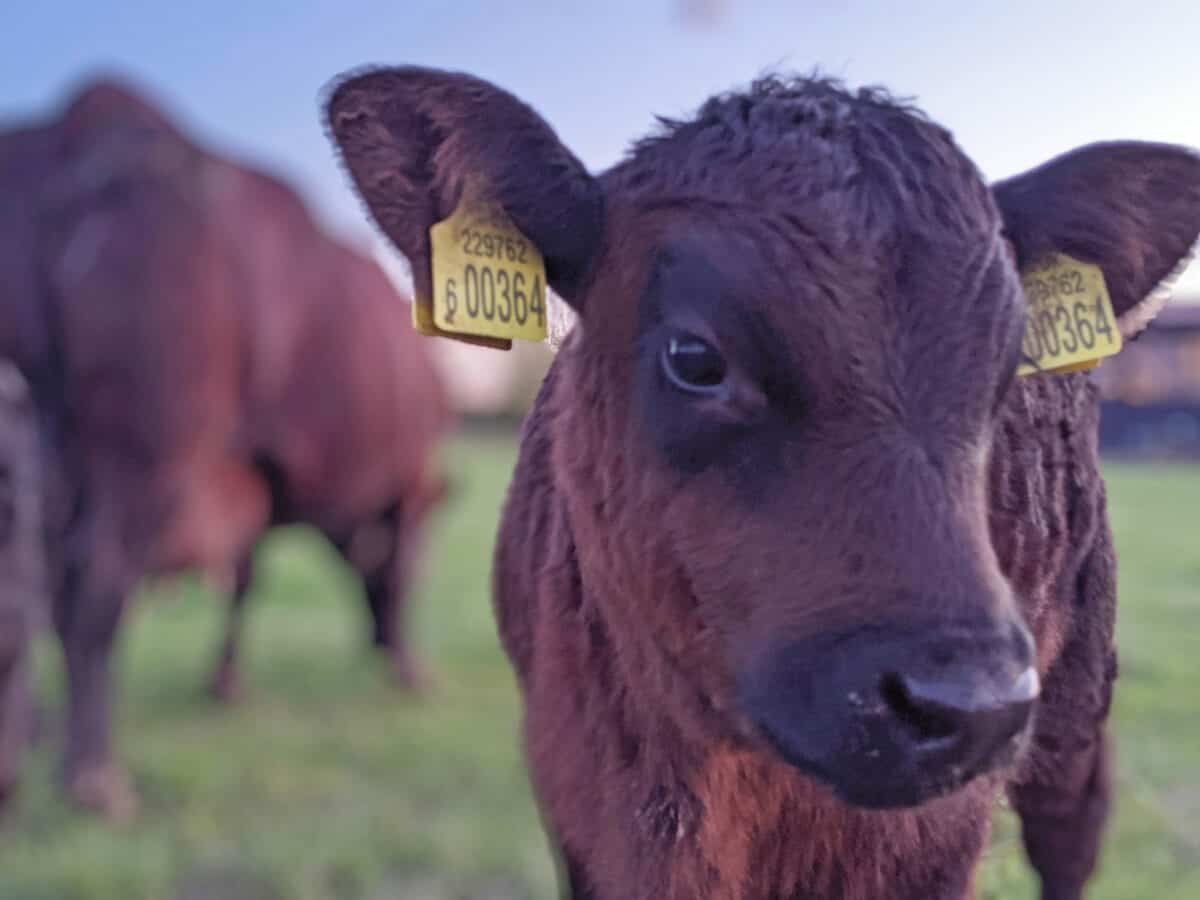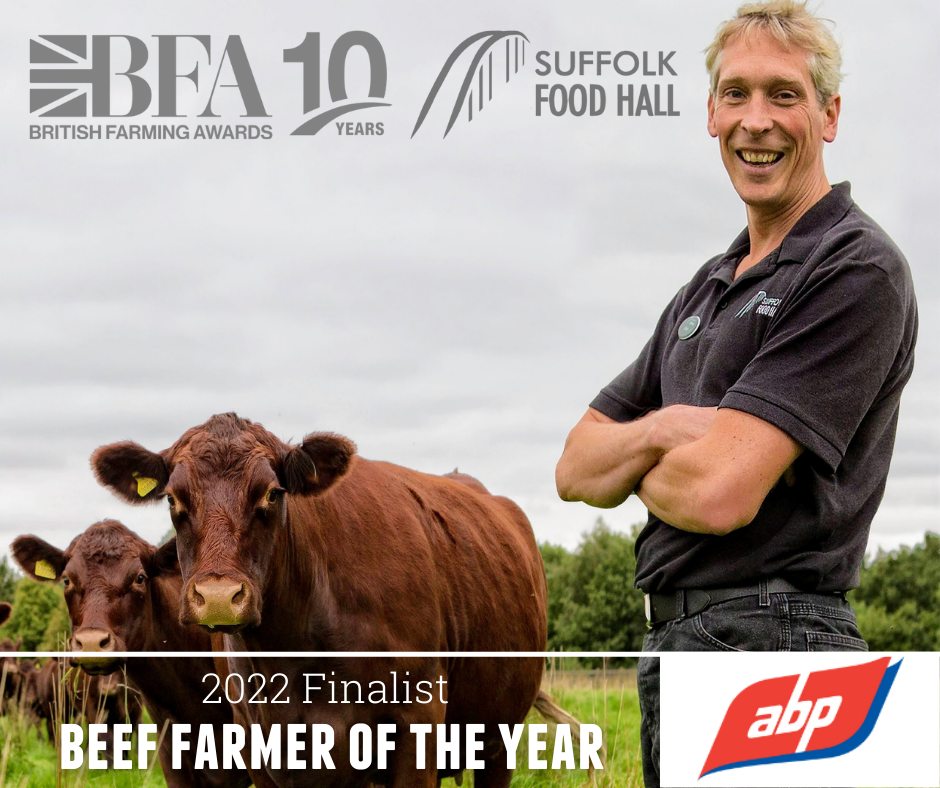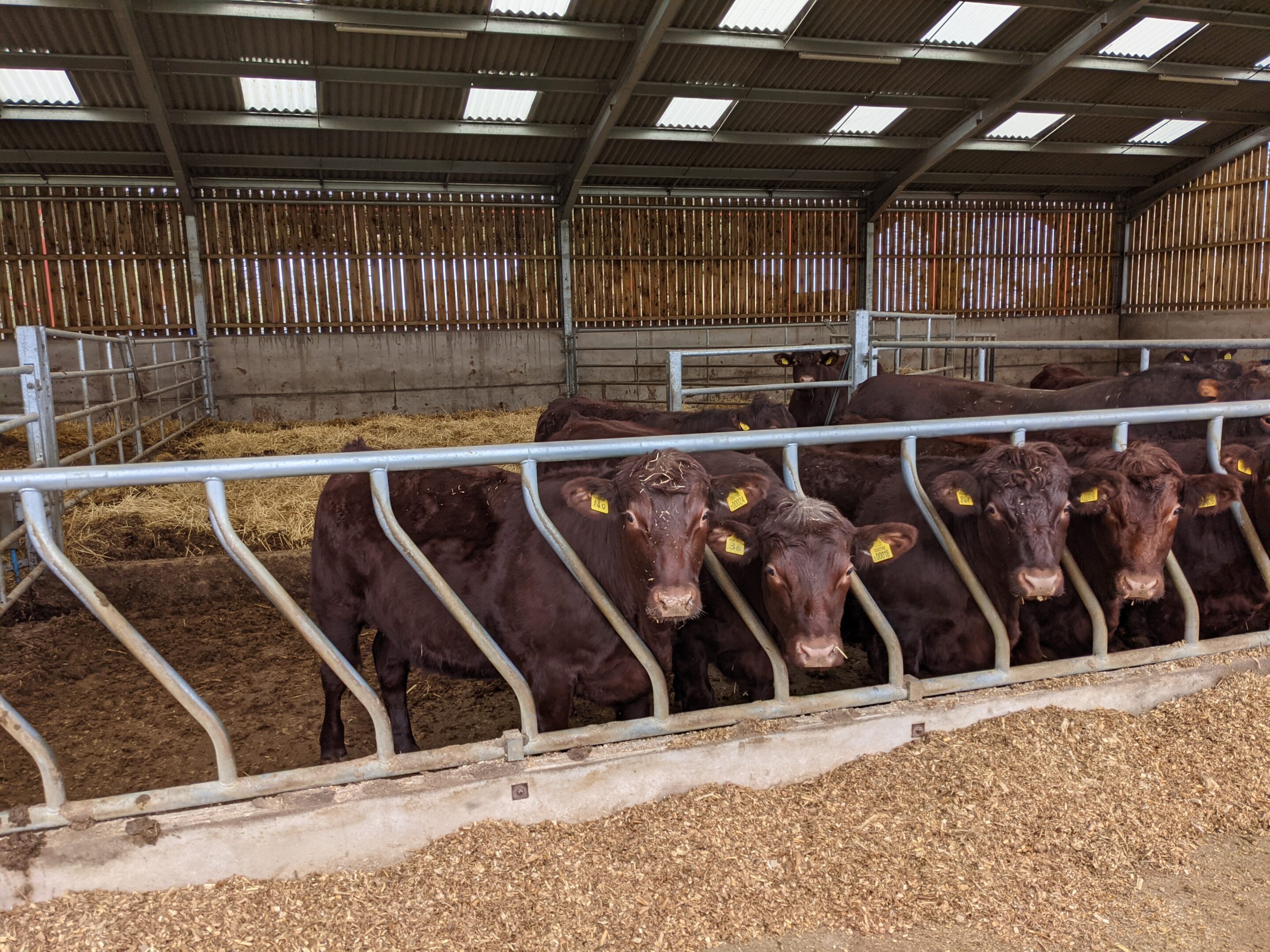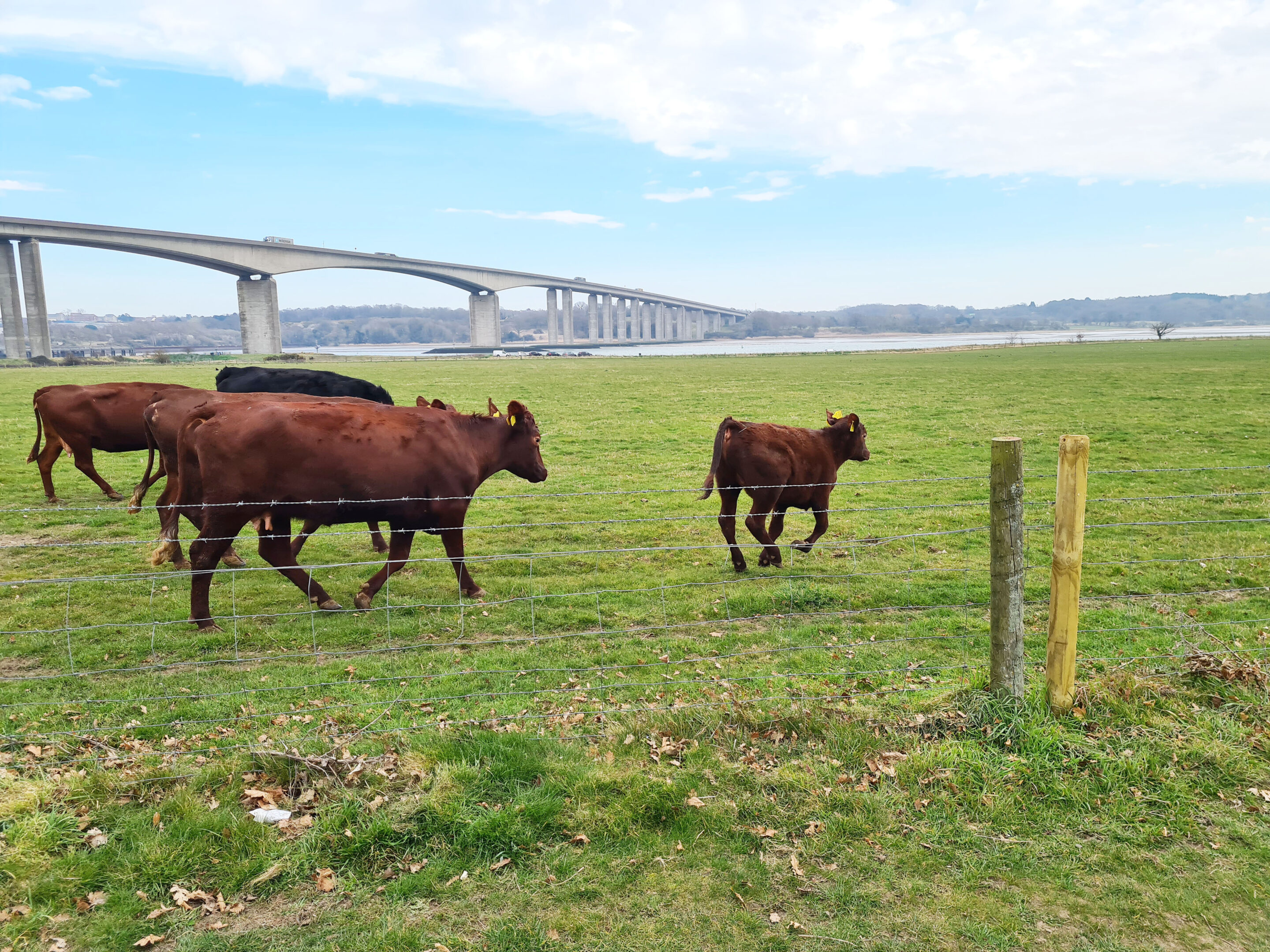British Farming Awards
Nomination
Suffolk Food Hall is part of a fifth generation suckler farm with a family background in agri-business, originally in feeds and malts and now diversifying into the award-winning farm shop.
Suffolk Food Hall has all you would expect in a large farm shop along with a cafe, restaurant, garden centre, event facilities, commercial kitchens, pilates studio, two gyms… and more! However, local food is always at the core and their own beef is their champion product.
Oliver Paul, one of the directors, has a long family history with Red Polls, the local native cattle breed. Their milk heritage, along with easy calving, good nature, and good conversion of dry and relatively poor grass into slow reared beef, makes the Red Poll a sensible choice for their closed herd system. They keep around 70 head on about 40 hectares of unimproved pasture for the suckler and fat stock herd, with some arable land let on and managed woodland set aside.
The principal aim is to supply a specialist product for their own butchery, through a low input system from cattle that are grazed on natural grassland to produce tastier, healthier meat and help maintain biodiversity. Ultimately, their customers want a small, slightly fatty, stronger tasting (a little older) meat and that’s what they provide.
Oliver’s attention to detail has allowed him to create this fantastic product in a great local amenity which is something we admire greatly. His dedication to sustainable farming practices, keeping happy, healthy animals while providing local produce to the area epitomises everything that is great about British farming. Oliver stands out from the crowd due to the nature of where his produce is produced and sold. From farm to fork his produce is distinctly traceable. His high-quality farm practices have resulted in an extremely successful business which is something that is highly commendable.
Nominated by HerdWatch
Supporting Statement
Our beef enterprise needs to sit comfortably within wider diversification ventures; in terms of time, management, capital and resource constraints. Specifically, we are in pursuit of an extensive (low input, easy management) suckler and finisher system that produces a high-value product for our own retail and hospitality channels. Added to this the farm has agri-environment and net carbon zero aspirations.
What have been the key changes/innovations you have introduced to your farm business?
We have a long family history with pedigree Red Poll cattle. The qualities of these cows (calving, temperament, milk yield from dry grassland, etc) are crossed with the beef benefits of an Angus terminal sire. Hybrid vigour has provided a significant boost.
A nutritionist provides valuable advice to opportunistically mix feedstuffs from neighbouring arable, horticultural and bakery operations.
Our ultimate KPI is ADG (deadweight) per size of cow, assuming this is proportionate to feed costs. Which is viewed alongside carcass grade, health, profitability, and return on capital over time. Maintaining management information (through Herdwatch cattle management software, farm assurance standards and an accounting system) has been the start of all changes.
A net carbon zero baseline and benchmark have been established and a mitigation project is starting. We are a SFI pilot participant and a CS Mid Tier scheme is in place across the pastureland and woodland (excluding the SSSI) pieces.
Public enjoyment and connection to the countryside, is provided via a holiday let enterprise. The Suffolk Food Hall and Cook House restaurant add retail and restauranting to the mix. The remainder of the farm has recently been included in a boundary extension of our Area of Outstanding Natural Beauty.
What inspires you to improve your farm business?
Personal satisfaction is high particularly by balancing a love of cows, with a pleasure in maintaining habitats, people enjoying our bit of Suffolk and its produce, and some commercial return (more from the trolley, than the tractor!)
What opportunities do you believe could affect your business over the next five years and what steps will you take to help you realise them?
Carbon and BNG Markets; we are establishing benchmarks and developing schemes that will work synergistically with the beef enterprise.
Selling high-welfare, wildlife-enriching, carbon-positive beef for a premium and informing customers so they can take pleasure in (buying and) eating it.
What challenges do you believe could affect your business over the next five years and what steps will you take to help address them?
Consumer interest in beef >
I advocate eating less but eating better and therefore continue to build a system to fulfil this directly, through vertical integration.
Support services locally, specifically abattoirs and vets >
It’s critical to get involved with the industry locally through the NFU, breed society, Suffolk Agricultural Association and FWAG.
Simplified propaganda against the benefits of ruminants >
Re-enforcing the health, ecological environmental, waste reduction and economic benefits of local beef; through many different channels (socials, blogs, radio interviews, writing articles for the local paper, farm tours, stewarding at the Suffolk Show, Schools Fair …)
What measures have you introduced to help the industry aim to achieve Net Zero by 2040?
With an extensive system, our oil inputs are low. Our carbon export is also higher with a straw for muck arrangement. However, methane reduction techniques are being developed with the nutritionist, along with finishing/performance times through breed and feed adjustments.
Sequestration practicalities continue through our agri-environment schemes.
Two biomass systems serve the farm and holiday lets already and a PV array is being commissioned. The Food Hall and Cook House also have a ESR programme, including increasing the PV output to 200kW.

Quotes
“Our nomination made a clear case that there is merit in a Suffolk Food Hall entry and we wanted to highlight the value of beef enterprises within mixed farming systems in the East of England”.
“It is a real honour to be shortlisted particularly as we know there are many more lucrative, well established, and equally progressive beef enterprises across the country. That said, we are challenging conventional thought, trying new and historic ways, and focused on the future of local food chains, supplying beef in the most sustainable way”.
The Awards
All 60 farmers shortlisted for the British Farming Awards 2022 are making huge strides in helping UK agriculture achieve the industry’s aim to reach net zero by 2040.
The finalists, from all corners of the country, are demonstrating impressive sustainable practices including the restoration of ancient orchards, planting thousands of kilometres of hedgerows to protect wildlife, and implementing a raft of renewable energies to run carbon neutral businesses.
The inspirational group of farmers and food producers will now battle it out for the top accolades across 15 categories which highlight the diversity and diligence of UK agriculture.
Alongside farming’s core sectors including dairy, beef, sheep and arable, there is a celebration of new entrants coming into the industry, the sophisticated progression of agri-technology and the continuing creation of innovative diversifications.
Organised by Agriconnect, parent company of Farmers Guardian, Arable Farming and Dairy Farmer, the British Farming Awards is supported by Morrisons.
The British Farming Awards is a nationally recognised event which has celebrated, showcased and rewarded hundreds of British farmers who have successfully introduced innovation to drive their business forward, despite ever-increasing challenges.
Sophie Throup, Head of Agriculture, Fisheries and Sustainable Sourcing at Morrisons, said: “As long-term supporters of British farming, we want to thank farmers across the country for the work they continue to do in these challenging times. We want to support the recognition of the effort, care, innovation and skills British farmers put into making and providing food we are all proud of”.
For more information on the awards and information on the finalists, visit www.britishfarmingawards.co.uk.



